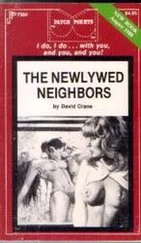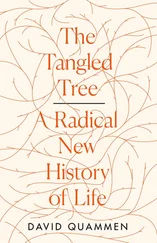David Ritchie - The New Warden
Здесь есть возможность читать онлайн «David Ritchie - The New Warden» — ознакомительный отрывок электронной книги совершенно бесплатно, а после прочтения отрывка купить полную версию. В некоторых случаях можно слушать аудио, скачать через торрент в формате fb2 и присутствует краткое содержание. Жанр: foreign_prose, на английском языке. Описание произведения, (предисловие) а так же отзывы посетителей доступны на портале библиотеки ЛибКат.
- Название:The New Warden
- Автор:
- Жанр:
- Год:неизвестен
- ISBN:нет данных
- Рейтинг книги:5 / 5. Голосов: 1
-
Избранное:Добавить в избранное
- Отзывы:
-
Ваша оценка:
- 100
- 1
- 2
- 3
- 4
- 5
The New Warden: краткое содержание, описание и аннотация
Предлагаем к чтению аннотацию, описание, краткое содержание или предисловие (зависит от того, что написал сам автор книги «The New Warden»). Если вы не нашли необходимую информацию о книге — напишите в комментариях, мы постараемся отыскать её.
The New Warden — читать онлайн ознакомительный отрывок
Ниже представлен текст книги, разбитый по страницам. Система сохранения места последней прочитанной страницы, позволяет с удобством читать онлайн бесплатно книгу «The New Warden», без необходимости каждый раз заново искать на чём Вы остановились. Поставьте закладку, и сможете в любой момент перейти на страницу, на которой закончили чтение.
Интервал:
Закладка:
As soon as Gwendolen had left the drawing-room Lady Dashwood closed her book and looked at her niece.
"Now," said Lady Dashwood, "I begin to think that I was unnecessarily alarmed about Jim. But it may be because you are here – giving me moral support." Lady Dashwood spoke the words "moral support" with great firmness. Having once said it and seen that it was wrong, she meant to stick to it.
"I wonder," began Mrs. Dashwood, and then she remained silent and looked hard at her knitting.
Lady Dashwood still stared at her niece. But May did not conclude her sentence, if indeed she had meant to say any more.
"Why, you haven't noticed anything?" asked Lady Dashwood.
"Nothing!" said May, and she knitted on.
"To-day," said Lady Dashwood, "Jim has been practically invisible except at meals, but you've no idea how busy he is just now. All one's old ideas are in the melting-pot," she went on, "and Jim has schemes. He is full of plans. He thinks there is much to be done, in Oxford, with Oxford – nothing revolutionary – but a lot that is evolutionary."
Mrs. Dashwood dropped her knitting to listen, though she could have heard quite well without doing this.
"Imagine!" exclaimed Lady Dashwood, with a little burst of anger, "what a man like Jim, a scholar, a man of business, an organiser, what on earth he would do with a wife like Gwendolen Scott! The idea is absurd."
"The absurd often happens," said May, and as she said this she took up her knitting again with such a jerk that her ball of wool tumbled to the floor and began rolling; and being a tight ball it rolled some distance sideways from May's chair in the direction of the far distant door. She gave the wool a little tug, but the ball merely shook itself, turned over and released still more wool.
"Very well, remain there if you prefer that place," said May, and as she spoke there came a slight noise at the door.
Both ladies looked to see who was coming in. It was the Warden. He held a cigar in his hand, a sign (Lady Dashwood knew it) that he intended merely to bid them "Good night," and retire again to his library. But he now stood in the half-light with his hand on the door, and looked towards the glow of the hearth where the two ladies sat alone, each lighted by a tall, electric candle stand on the floor. And as he looked at this little space of light and warmth he hesitated.
Then he closed the door behind him and came in.
CHAPTER VI
MORE THAN ONE CONCLUSION
The Warden came slowly towards them over the wide space of carpeted floor.
Lady Dashwood, who knew every passing change in his face and manner (they were photographed over and over again in every imaginable style in her book of life), noticed that the sight of herself and May alone, that is, without Gwen – had made him decide to come in. She drew her own conclusions and smiled.
"When you pass that ball of wool, pick it up, Jim," she said.
She spoke too late, however, and the Warden kicked the ball with one foot, and sent it rolling under a chair. It took the opportunity of flinging itself round one leg, and tumbling against the second. With its remaining strength it rolled half way round the third leg, and then lay exhausted.
"I'm not going to apologise," said the Warden, in his most courteous tones.
"You needn't do that, my dear, if you don't want to," said Lady Dashwood. "But pick up the ball, please."
"If I pick the ball up," said the Warden, "the result will be disastrous to somebody."
He looked at the ball and at the chair, and then, putting his cigar between his teeth, he lifted the chair from the labyrinth of wool and placed it out of mischief. Then he picked up the ball and stood holding it in his hand. Who was the "somebody"? To whom did it belong? It was obvious to whom it belonged! A long line of wool dropped from the ball to the carpet. There it described a foolish pattern of its own, and then from one corner of that pattern the line of wool ran straight to Mrs. Dashwood's hands. She was sitting there, pretending that she didn't know that she was very, very slowly and deliberately jerking out the very vitals of that pattern, in fact disembowelling it. Then the Warden pretended to discover suddenly that it was Mrs. Dashwood's ball, and this discovery obliged him to look at her, and she, without glancing at him, slightly nodded her head, very gravely. Lady Dashwood grasped her book and pretended to read it.
"I suppose I must clear up this mess," said the Warden, as articulately as a man can who is holding a cigar between his teeth.
He began to wind up the ball.
"How beautifully you are winding it!" said May Dashwood, without looking up from her knitting.
The Warden cleared the pattern from the floor, and now a long line of wool stretched tautly from his hands to those of Mrs. Dashwood.
"Please stop winding," she said quietly, and still she did not look up, though she might have easily done so for she had left off knitting.
The Warden stopped, but he stood looking at her as if to challenge her eyes. Then, as she remained obstinately unmoved, he came towards her chair and dropped the ball on her lap.
"You couldn't know I was winding it beautifully because you never looked."
"I knew without looking," said May. "I took for granted that you did everything well."
"If you will look now," said the Warden, "you will see how crookedly I've done it. So much for flattery."
He stood looking down at her bent head with its gold-brown hair lit up to splendour by the electric light behind her. Her face was slightly in shadow. The Warden stood so long that Lady Dashwood was seized with an agreeable feeling of embarrassment. May Dashwood was apparently unconscious of the figure beside her. But she raised her eyebrows. Her eyebrows were often slightly raised as if inquiring into the state of the world with sympathy tinged with surprise. She raised her eyebrows instead of making any reply, as if she said: "I could make a retort, but I am far too busy with more important matters."
The Warden at last moved, and putting a chair between the two ladies he seated himself exactly opposite the glowing fire and the portrait above it. Leaning back, he smoked in silence for a few moments looking straight in front of him for the most part, only now and then turning his eyes to Mrs. Dashwood, just to find out if her eyebrows were still raised.
Lady Dashwood began smiling at her book because she had discovered that she held it upside down.
"You were interested in Stockwell?" said the Warden suddenly. "He is doing multifarious things now. He is an accomplished linguist, and we couldn't manage without him – besides he is over military age by a long way."
Lady Dashwood felt quite sure that his silence had been occupied by the Warden in thinking of May, so that his question, "You were interested," etc., was merely the point at which his thoughts broke into words.
"I was very much interested in him," said May. "It was like reading a witty book – only much more delightful."
"Stockwell is always worth listening to," said the Warden, "but he is sometimes very silent. He needs the right sort of audience to draw him out. Two or three congenial men – or one sympathetic woman." Here the Warden paused and looked away from May Dashwood, then he added: "I'm obliged to go to Cambridge to-morrow. You will be at Chartcote and you will get some amusement out of Boreham. You find everybody interesting?" He turned again and looked at her – this time so searchingly that a little colour rose in May Dashwood's cheek.
"Oh, not everybody," she said. "I wish I could!"
"My dear May," said Lady Dashwood, briskly seizing this brilliant opportunity of pointing the moral and adorning the tale, "even you can't pretend to be interested in little Gwendolen, though you have done your best. Now that you have seen something of her, what do you think of her?"
Читать дальшеИнтервал:
Закладка:
Похожие книги на «The New Warden»
Представляем Вашему вниманию похожие книги на «The New Warden» списком для выбора. Мы отобрали схожую по названию и смыслу литературу в надежде предоставить читателям больше вариантов отыскать новые, интересные, ещё непрочитанные произведения.
Обсуждение, отзывы о книге «The New Warden» и просто собственные мнения читателей. Оставьте ваши комментарии, напишите, что Вы думаете о произведении, его смысле или главных героях. Укажите что конкретно понравилось, а что нет, и почему Вы так считаете.












